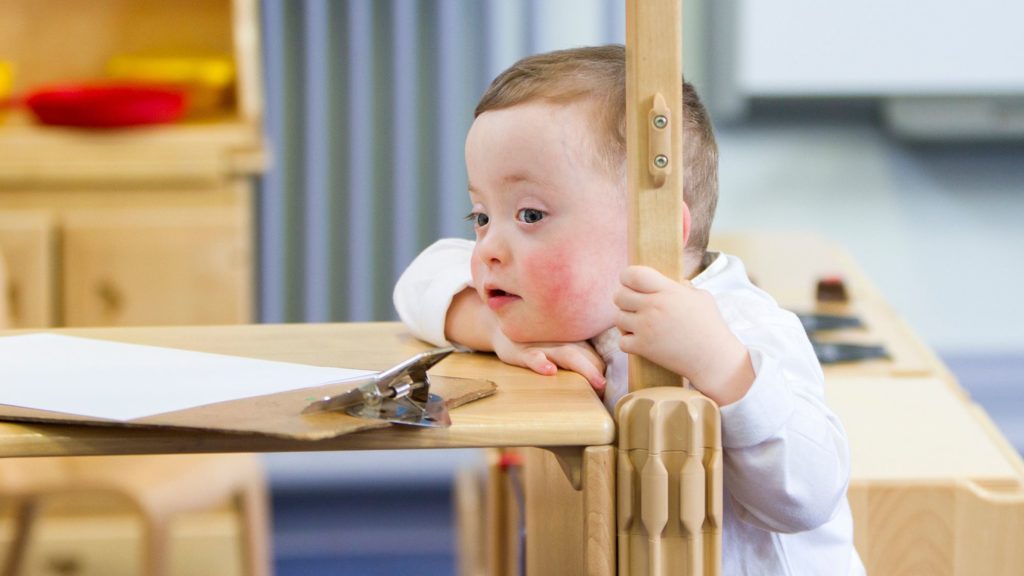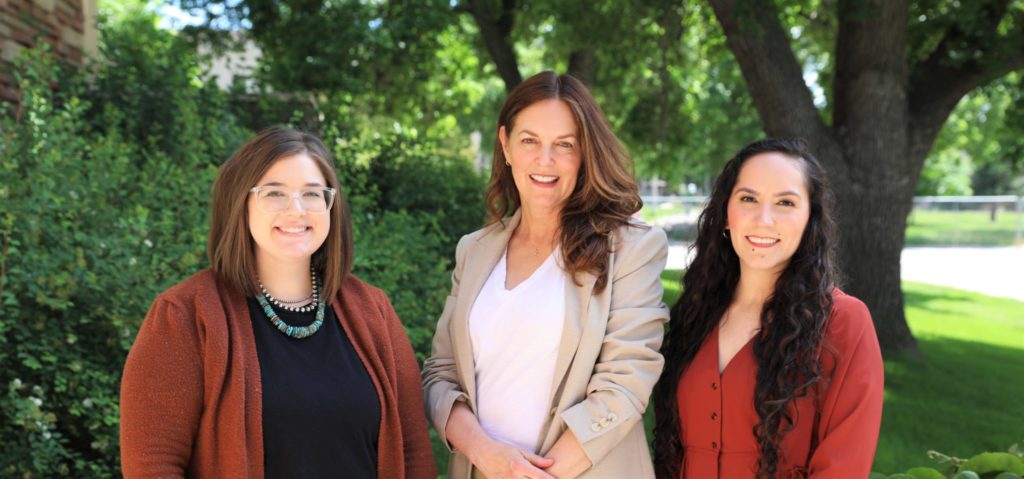
Children with Down syndrome often take twice as long to develop motor skills such as sitting and walking than those without. Additionally, they are disproportionately affected by health challenges such as weight gain with rapid increases observed between ages two and six. The slow development of motor skills and the heightened susceptibility to weight-related health issues in individuals with Down syndrome poses prevention challenges that are currently unmet, but one that a team in the Developmental Disabilities Lab at Colorado State University is actively tackling.
Lisa Daunhauer, associate professor in the Department of Human Development and Family Studies, has launched a recently funded project to optimize health foundations for young children with Down syndrome called “Early Health and Motor Abilities in Down Syndrome .” The grant is funded by the National Institute of Child Health and Human Development/National Institutes of Health.
Optimizing health for toddlers and preschoolers with Down syndrome
“In the general population, research has investigated physical activity, nutrition, and additional risk and protective factors contributing to children’s wellness,” said Daunhauer. “However, research examining young children with Down syndrome has primarily focused on prevalence rates of health risks extracted from clinical visits with minimal attention to modifiable lifestyle factors, despite being a specific, high-risk population for health disparities.”

The goal of this project is to identify those changes that can be implemented in early childhood to enhance lifespan wellness outcomes for individuals with Down syndrome.
“This work also aligned with my values being a mom and trying to raise a healthy child,” said Daunhauer.
Taking a comprehensive approach, this project looks at how motor skills development, physical activity, feeding abilities, co-occurring conditions, dietary intake, and the family context identify protective factors and risks in children with Down syndrome. The goal is to identify how to prevent these downstream health outcomes for children ages 18 months to 47 months.
To study these various aspects of a child’s life, Daunhauer has a playful and seamless approach to working with children and their families.
“The children will do what looks like games,” said Daunhauer. “There might be nerf balls, pull-string toys, and drawing tools. Through their play, we can assess cognitive abilities, motor abilities, and overall development based on reactions, physical movement, and more.”
In addition to the work done in the physical lab space, children will be asked to wear a watch, called an ActiGraph, that measures activity and sleep at home. This helps researchers to know what a typical day of activity might look like without burdening caregivers. Additionally, caregivers are invited to complete questionnaires to help researchers better understand the full context of their child’s life.
“This research will help us understand the most important components of lifestyle factors for this population,” said Daunhauer. “The activities are intentionally designed to be engaging and playful, ensuring that children have a blast while leaving with a positive and memorable experience.”
Children participate in approximately two, two-hour sessions or one four-hour session with breaks. They can participate for up to three years in a row with compensation of up to $100 per year for participation in this study. Daunhauer will be gathering data for this study in Colorado and Ohio for five years.
People behind the research

Lisa Daunhauer (center) poses with two of her team members Breelynn Frank, assessment technician (left) and Bianka Enriquez Estrada, research associate (right).
One of Daunhauer’s research interests is executive functioning. Executive functioning is a set of cognitive processes necessary for the cognitive control of behavior. Executive functions are needed for orchestrating self-control and managing behaviors, allowing people to follow directions, focus, control emotions, and attain goals.
“While working in the Developmental Disabilities Lab, I realized we can add executive functioning in a more holistic way to our research, focusing on how it can optimize function in everyday life,” said Daunhauer.
Alongside Daunhauer, there is a strong team of faculty, staff, students, and partners. Daunhauer, is the study lead. The core team of faculty at CSU includes Deborah Fidler and Nate Riggs, professors of human development and family studies, and Mark Prince, assistant professor of psychology.
Colorado partners include the University of Colorado Anschutz medical campus and Ohio partners include Cincinnati Children’s Hospital Medical Center and the Jane and Richard Thomas Center for Down Syndrome.
If you or someone you know is interested in participating in this project, please fill out the research participant form on the project webpage.
The Department of Human Development and Family Studies is part of CSU’s College of Health and Human Sciences.